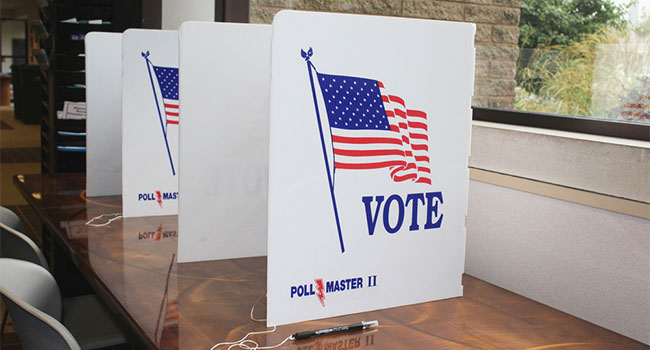
As Companies Push Mobile Voting, Experts Warn of Potential Election Security Issues
More counties want to expand mobile and online voting, but cybersecurity experts say there are still too many vulnerabilities to roll out mobile voting systems.
- By Haley Samsel
- Nov 06, 2019
On Election Day this week, a small group of voters with disabilities was able to cast ballots on their smartphones using blockchain technology and a user-friendly app. But despite the progress made on making voting easier for people with disabilities and military personnel serving overseas, election security experts say the technology poses several security issues.
A collaboration between tech company Voatz, the nonprofit Tusk Philanthropies and the National Cybersecurity Center has been piloted for some military voters in states like West Virginia, Colorado and Utah, TIME reported.
In Utah County, Utah, officials decided to expand the pilot to include voters with disabilities for this year’s municipal elections. Two more counties in Oregon — Jackson and Umatilla — also piloted the Voatz system for military and overseas voters on Tuesday. The idea is to make it easier for citizens to cast their votes regardless of location or physical challenges.
Users download the Voatz app to their smartphone, scan their fingerprint and government-issued ID, and record a “video selfie” to verify their identity before they are able to fill out a digital ballot. After casting a vote, the user receives an emailed receipt of their ballot showing their choices, according to TIME.
Election officials are sent a copy of the receipt by email, fax or logging into Voatz’s blockchain “lock box,” where voters are stored until officials print out the ballots on Election Day. While the process sounds simple, cybersecurity researchers have raised concerns about the difficulty of verifying if the system is secure and if blockchain technology can be relied on to provide accurate results.
“We think it’s great that election officials are trying bold innovations to help people vote,” Mark Lindeman, the senior science and technology policy officer at election security nonprofit Verified Voting, told TIME. “But we think this bold innovation isn’t ready for prime time.”
While government officials can print out paper ballots of votes cast through the app and compare them to “voter-verified digital receipts” recorded at the time of the vote, there is a lot missing from the verification process, Lindeman said.
“We don’t actually have any way of knowing that what the voter looked at is the same thing as what the Secretary of State’s office looked at,” Lindeman said. “That’s that’s just not what voter verification means.”
Duncan Buell, a computer science professor at the University of South Carolina who wrote a paper detailing concerns about Voatz, said that the addition of blockchain tech to the process does not solve the security issues associated with mobile voting.
“Everybody regardless of what they’re doing, are going to claim they’re doing blockchain because that’s going to make it sound sexy and exciting and shiny,” Buell told TIME.
Still, disability advocates and voters rights activists point to mobile voting as a major way to expand access to the ballot box. But those advocates acknowledge the need to audit and test voting systems to ensure that outside forces, including foreign hackers, seeking to interfere with U.S. elections are prevented from doing so.
“Voters with disabilities want elections to be accurate and fair and secure and for the process to have integrity as much as any other voter,” Michelle Bishop, the voting rights specialist at the National Disability Rights Network, told the magazine. “I believe in testing and certification. I believe in piloting these kinds of technologies towards that end to see if it’s going to work for accessibility purposes and to make sure we can secure it."
About the Author
Haley Samsel is an Associate Content Editor for the Infrastructure Solutions Group at 1105 Media.